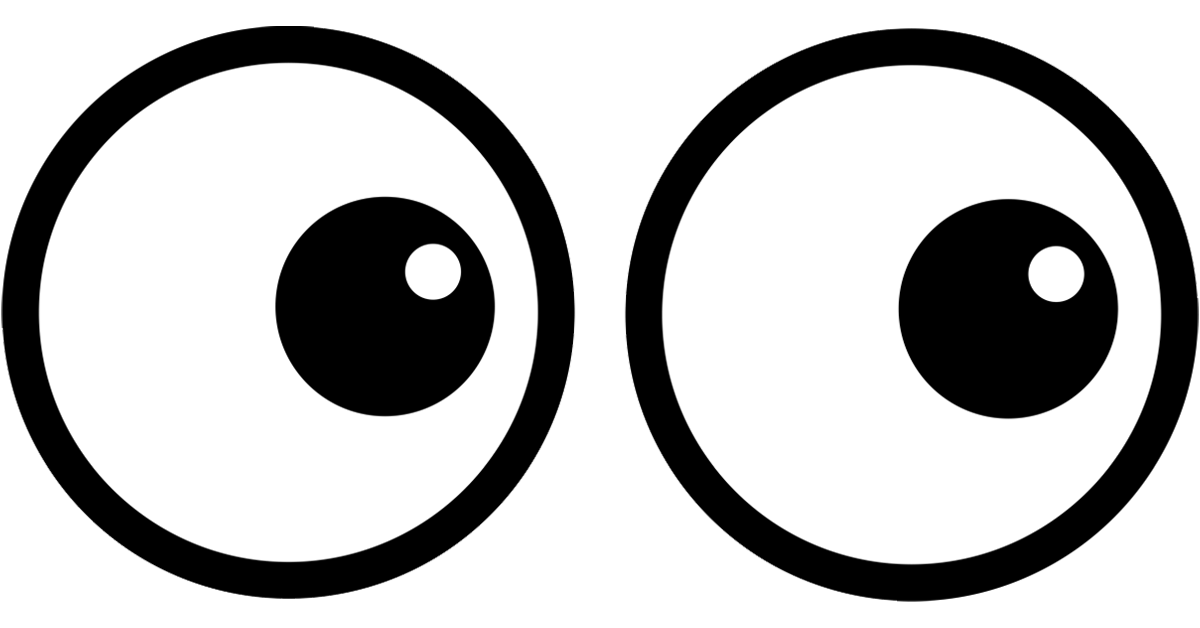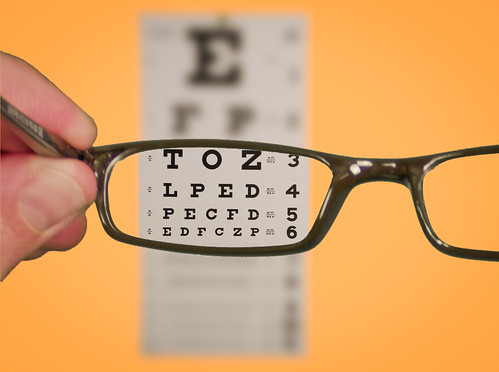
Getting an annual eye exam is one of the best things you can do for your ocular health because it helps detect problems in their early stages, when they’re most likely to respond to treatment. When you visit Northeastern Eye Institute for your next exam, our eye care professionals will help you correct changes in your vision if needed and provide you with information about how to best care for your eyes. To get the most out of your appointment, there are a few things you can avoid doing to help your exam go smoothly.
Don’t Leave Your Glasses and/or Contacts at Home

Image via Flickr by kenteegardin Licensed CC BY-SA 2.0
Remember to bring your current eyeglasses and contacts if you wear them. This will help your eye doctor decide if your current prescription allows you to see as clearly as possible. It will also give them a chance to make sure your glasses and contacts fit properly. This is especially useful for contact lens wearers, since ill-fitting contacts can irritate your eyes and cause problems later.
In addition to your eyeglasses, bring a pair of sunglasses with you as well, since your eyes will probably dilate during your exam. Wearing a pair of well-fitting sunglasses will help you manage any light sensitivity that occurs after dilation so you can stay comfortable until the drops wear off. Don’t worry if you don’t have a pair of sunglasses; we have disposable pairs available if you need them.
Don’t Drink Coffee or Alcohol
Regular eye exams sometimes reveal health issues other than those directly related to your ocular system, such as high blood pressure. This makes it important to avoid substances that may affect your blood pressure by making it higher or lower than usual.
To help keep your blood pressure at normal levels during your appointment, consider avoiding coffee and other caffeine products that day. If you can’t do without your morning cup of Joe, switch to decaf or half-caffeinated instead.
Alcohol is another substance that affects blood pressure. It can also make your eyes feel dry and irritated, which can affect the results of an exam. For these reasons, it’s best to refrain from heavy drinking the night before your exam and avoid alcohol altogether the day of your appointment.
Don’t Strain Your Eyes
One of the first parts of an eye exam is a vision test that assesses your eyesight at a distance of 20 feet using an eye chart. This test identifies refractive errors and helps your provider determine if you need corrective lenses. Coming into the office with well-rested eyes can help maximize your exam’s accuracy.
If possible, minimize screen time in the hours prior to your appointment to help keep your eyes well-rested. This is important because too much screen time sometimes leads to digital eye strain, which can cause eye fatigue and affect your exam’s results. One of the easiest ways to ensure your eyes are well rested is to schedule a morning appointment. Early appointments are especially helpful if you use a computer or tablet for work or school. That said, morning appointments aren’t an option for everyone, and afternoon and evening appointments almost always yield accurate results.
If you’ve spent a lot of time on your computer or phone before your exam, rest your eyes as much as possible an hour or two prior to arriving at our office. Even just closing your eyes in the waiting room for a few minutes before your exam is helpful.
Don’t Feel Nervous
While it’s natural to feel nervous before any type of medical exam or procedure, thanks to modern technology, eye exams are quick, painless experiences that most people don’t seem to mind at all. For example, corneal imaging and retinal scans are non-invasive, performed with digital cameras, and only take a few seconds to complete. The entire exam only takes about an hour, and sometimes less.
For the majority of people, the most unpleasant part of an eye exam is the light sensitivity that occurs after eye dilation. While many people think it’s a hassle, eye dilation is necessary for most patients because it allows your eye doctor to more easily check for issues such as a torn retina, diabetic retinopathy, glaucoma, and cataracts. While light sensitivity is irritating, know that it will begin to dissipate soon after your appointment, and your vision will return to normal within a few hours.
Don’t Leave Your Insurance Information at Home
Bring your current insurance information to your appointment. If you’re concerned about a medical issue, such as glaucoma or dry eyes, you’ll need your medical insurance. If you’re getting your annual eye exam to check for vision changes, your vision insurance should suffice. Either way, having both your medical and vision insurance information with you can help expedite your appointment. Please bring your government-issued ID with you as well, and feel free to call ahead to make sure we accept your insurance.
Don’t Forget to Stay Hydrated
Adequate hydration is as important for your ocular system as it is for the rest of your body. When you’re hydrated, your eyes are more likely to produce enough tears to keep your eyes moist, which can help you see better. For people who struggle with dry eye, dehydration is likely to worsen their symptoms. Drinking a glass of water before your appointment can help you stay comfortable during your exam and may even help maximize its accuracy.
Don’t worry if you’re unable to avoid some of these steps listed here. They are helpful but not required for a successful exam. Here at Northeastern Eye Institute, we want our patients to live long, healthy lives, and annual eye exams play a big role in helping you achieve that. If you have any questions about what to expect, please contact our friendly eye care experts here at our office. We want you to feel comfortable coming in for your appointment and would love to answer any questions or address any concerns you might have.